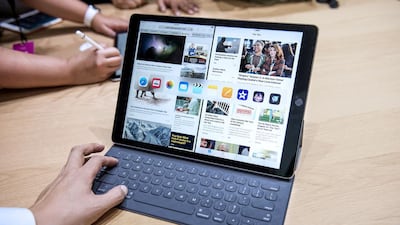In the past couple of weeks I have received two emails from Microsoft. The first one advised me that my computer’s subscription to MS Office had expired and, if I wanted to continue to use Word, Excel and the software suite’s other features, I’d have to pay for another annual subscription.
The second email warned me that some data from my One Drive cloud-storage service would soon be erased because the maximum allowable amount had dropped from 15GB to 5GB. My options were to delete selected files until I was under the new limit or – and you've probably guessed it – pay for more space.
This had me pining for the time when it was more common to buy Office outright – you still can, but today’s subscription model is likely to be more popular – and were able use it for ever as long as you didn’t continually update your version of Windows, which ultimately renders most software inoperative. One exception, incidentally, being a file-transfer program called WS-FTP95 which I downloaded free more than 20 years ago and has worked on every version of Windows up to including the current one. Best money I never spent.
Now I fully understand the thinking of the creators of Office and other subscription-based software, such as Adobe’s Creative Suite. They are investing money in making enhancements to their product, so it would only seem fair that we as customers continue to pay them to do so.
But what if I don’t want those enhancements? I know Word for Windows has undergone many changes since it was released in 1989, but the fact is that I’d be quite happy to be using the version I bought in 1997, which could do absolutely everything I’ve ever wanted to do with word-processing software on my home computer. It’s just a shame that it came on 5¼-inch floppy disks that are not readable by my laptop (or, I believe, by any other device still being manufactured). So, I am faced with having to pay once again for Word, along with all those bells and whistles that I don’t need and won’t ever use.
But software developers aren’t the only ones playing this game. I was introduced to the term “planned obsolescence” many years ago when I heard the (possibly apocryphal) story about the man who was sacked from his job designing refrigerators. The reason given by his bosses was that his fridges were simply too robust. They lasted for decades, but the company’s business plan relied on customers having to buy a new model at least every 10 years.
Similarly, we don’t have to buy music or films any more, we can stream them from the likes of Spotify, Pandora and Netflix. We have access to our favourite content until we stop paying, and then it all disappears back into the cloud.
And, just like my One Drive, these services often come with a free trial period, intended to lure us in before we are signed up, probably for life. I am really bad at remembering to cancel standing orders on my credit card, so it’s often the case that I continue to pay for services long after I stop using them. Case in point: my e-life television package that I’ve not accessed this year. I’m sure I’m not the only one.
Now, I don’t object to people – artists, musicians, software designers – getting paid for the work they do. But there should be a limit to the number of times I have to pay for the same thing. In the case of music, I already own many songs several times over, having purchased them in different formats and/or as part of compilations.
I can and will continue to purchase my favourite songs or movies on physical disks or as digital downloads and own them for all time, playing them whenever I want for nothing more than the cost of the electricity to recharge my device.
But maybe, one day, I won’t be able to do that. If the owners of that material can make more money from selling it to me again and again, they will almost certainly find a way to do that.
bdebritz@thenational.ae
On Twitter: @debritz

